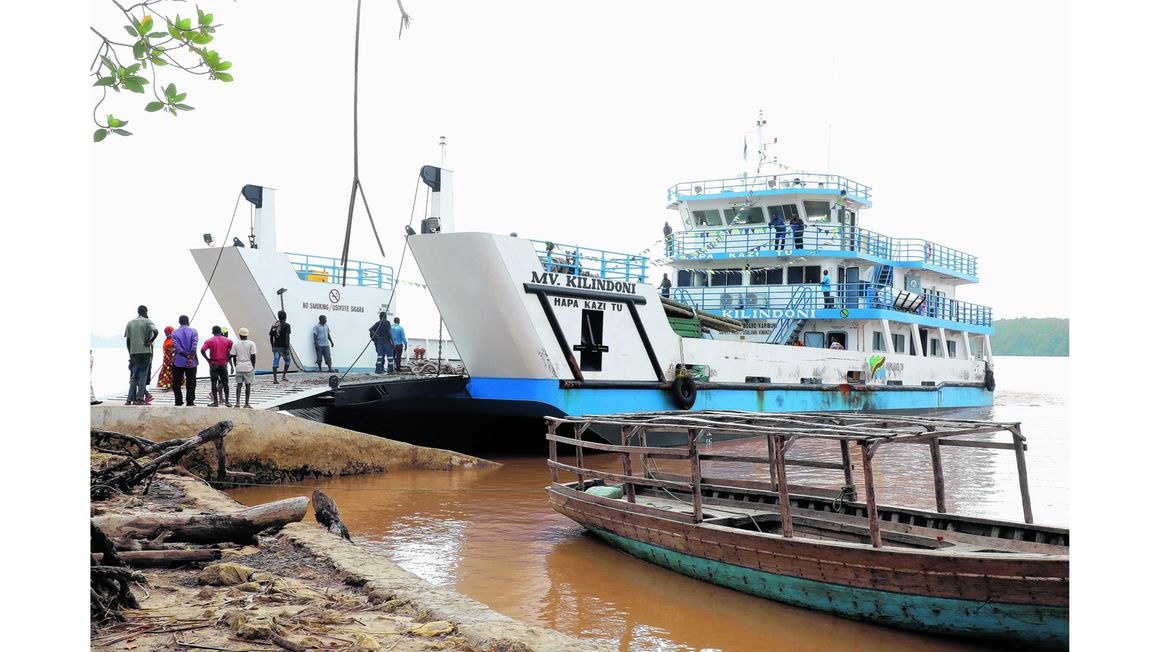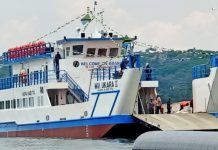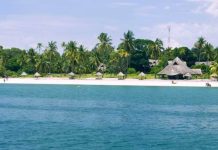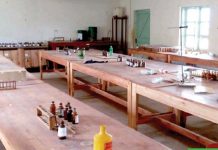AfricaPress-Tanzania: A State-funded Sh5.30-billion ferry commenced its operations between Mafia and Nyamisati in the Coast Region early February.
The 100-tonne capacity ferry was built by the Mwanza-based Songoro Marine Transport Boatyard at its Kigamboni workshop in Dar es Salaam.
In each trip of the vessel, it can carry up to 200 passengers and ten vehicles.
Christened MV Kilindoni, Hapa Kazi Tu, its arrival was good news to Mafia and Nyamisati residents as it ended long time transport challenges between the two areas leading to over-dependence on canoes and small ships, putting people’s lives and property at risk.
But, the new vessel brings a new hope to people including opening up more economic opportunities that would transform lives in Mafia and Nyamisati.
Most residents told The Citizen that the ferry would not only bring relief in transport fare, but cut the costs of shipping cargo between the two destinations and beyond.
The Citizen paid a visit to the Island located in Coast Region and plied in the ferry from Nyamisati Village along the Rufiji River Delta to the Indian Ocean.
Separately, residents told Mwananchi Digital that hopes and expectations were high that the ferry was going to transform lives.
“I strongly commend the fifth phase government for the ferry that is going to address transport challenges between Mafia and Nyamisati,” said Mr Said Luluba, a petty trader and resident of Nyamisati Village.
Mr Shaban Mohamed, a teacher at Nyamisati Secondary School, said less time would be required now for the ferry to ply cargo between the two destinations. “People’s economy will significantly be improved, therefore increasing their ability to meet children’s educational requirements that are not provided in the government’s free education setup,” he said.
Mr Yusuf Chenga, a trader and resident of Nyamisati said signs were that the ferry would liberate trade and end years of unreliable transport between the two sides.
“In the past canoes were used to ferry people and cargo between the two sides leaving behind more others due to low capacity. But, those who missed transport accessed money transfer, food, beverages and sometimes accommodation services therefore benefiting villagers doing business here,” he said.
“However, the ferry has increased the number of passengers plying between the two destinations, something that stimulated the area and improve earnings of locals.”
Another resident, Mr Selemani Chinjocha said transport fare has been reduced from Sh21,000 to Sh16,000 per person, and attracts transportation of more cargo.
Ms Radhia Muhsin, a beverages trader at Nyamisati, said trucks travelling to the area have increased; therefore, the costs of transporting commodities have declined as compared to when commuter buses were used.
However, their Mafian counterparts had different opinions, with Ms Mwaka Hatibu blaming the ferry management for failure to set up a reliable schedule for the ferry, especially when plying from Nyamisati to Mafia.
“Sometimes we spend up to four hours waiting for departure time. Other people arrive from Dar es Salaam on a rush without completing important issues,” she said.
But, Tanzania Electrical, Mechanical and Services Agency’s (Temesa) chief executive officer Japhet Maselle said the ferry was currently being operated on the provisional basis. “They should be patient because we are studying various issues including the behaviour of tides at these early days of operations. A fixed schedule will be provided in future,” he said.
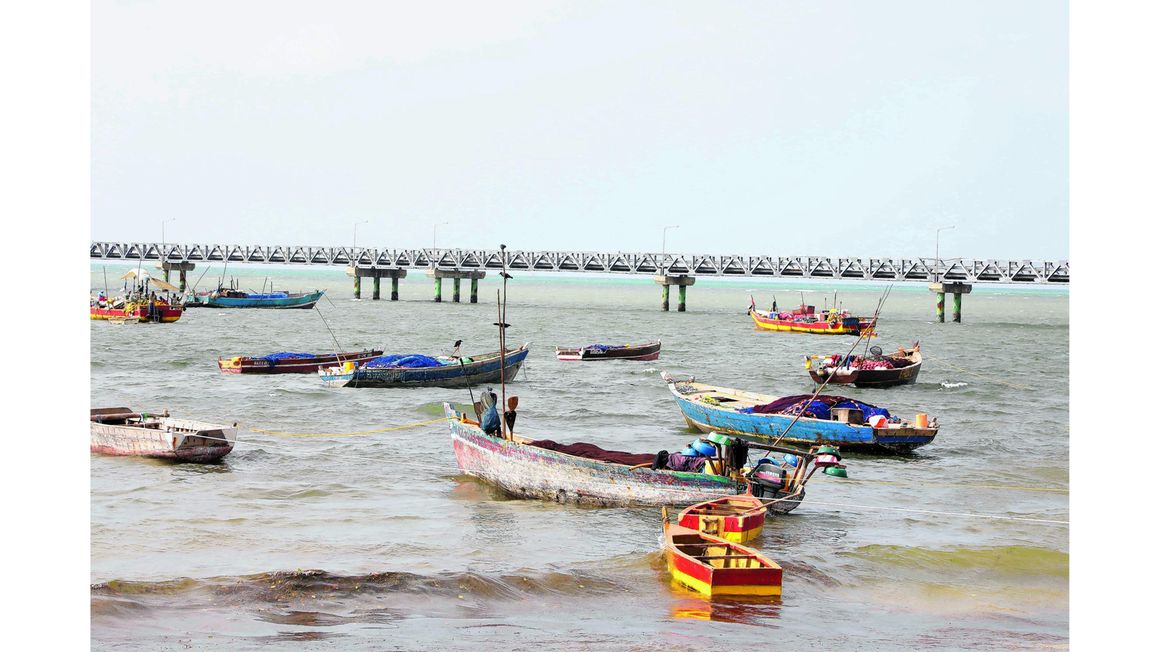
Fishing canoes dock on the Mafia side alongside the bridge linking the berth to land. The ‘berth-bridge’ is nearly a kilometre long. PHOTO | SAID KHAMIS
Mafia landing site
Fishermen, fish and sardine dealers lamented that a modern landing site built using millions of shillings of government’s money had turned into be a white elephant.
They told The Citizen that the facility equipped with a generator, ice producing machine, offices, latrines and a cold-room has been abandoned and reason has been provided.
“The main excuse given is that fishing vessels can’t dock at the area due to insufficient water at the time fishermen arrive. But, the attributions don’t hold water because the project was implemented after thorough feasibility studies by fishing experts,” fish traders’ chairman Hassan Bojo said.
Mr Bojo said not only fishermen were denied the opportunity to benefit economically, but also the council was deprived of possible revenues.
Mafia District Council chairman Juma Ally said the landing site was among challenges addressed by citizens during election campaigns last year. “The council has resolved to reinstate all operations at the facility with immediate effect because there was no reason to continue using the traditional landing site that lacks good infrastructure,” he told The Citizen.
Docking area
In Mafia, the berth is located about a kilometre from the shore; therefore, traders addressed concerns that they had to dig deep in their pockets to transport cargo as compared to the past when canoes were used.
“Sh5,000 was paid per sack in the past from the two sides, but currently we are paying Sh4,000 for transportation in the ferry – and yet pay Sh2,000 to Sh3,000 for the sack to reach the shore,” Mr Bojo said, adding that the vessel hasn’t actually brought relief to traders in terms of transportation costs.
He was supported by a trader of round potatoes, onions and tomatoes, Mr Juma Njou, who said the ferry had added costs of doing business. But, Mr Maselle said though prices were established after involving stakeholders in the area, existing challenges will completely be addressed when the Tanzania Ports Authority (TPA) completes the project to construct a friendly berth like the one used by MV Magogoni in Dar es Salaam.
Fishing
Mr Bojo told The Citizen that the government has introduced new fishing regulations requiring sardine fishermen to use nets of three-inch eyes, instead of those with two-and-a-half inches used previously.
“They also want fishing to be done in areas of 50-metre deep and seek the permission of the director of fisheries in order to use lamps when fishing sardine. The regulations had to be practically tested after stakeholder involvement,” he said.
He was supported by fisherman Hamis Ahmad who said the regulations would kill the sector in the Island whose residents depended on fishing for their livelihood.
They were supported by the council chair (Mr Ally) who said the implementation of the regulations would kill the Mafia Council, saying nearly 50 percent of revenue sources amounting to Sh588 million out of Sh1.2 billion budget projections would be eliminated.
“The minister of Livestock and Fisheries should look at the Mafia Council with an exceptional eye. Otherwise, the council will be disbanded and return it to be a division over poor revenue sources,” he said.
Contacted yesterday, Livestock and Fisheries minister Mashauri Ndaki said laws were amended according to procedures.
“We are here to serve the citizens, if they have concerns on existing laws, they should submit their views for the government to determine provided they opinions are aimed at bringing a mutual benefit for all.”
Sardines drying structures
Ms Hatibu said the area was facing shortage of modern equipment for drying sardine in all seasons of the year, therefore the quality and ultimately value of ship from the Island. “The government should consider providing us with modern equipment that will allow us to carry our activities throughout the year,” she opined.
According to her, sardine from Mafia were well known locally and in neighbouring countries, including the Democratic Republic of Congo (DRC) as being the best.
Reacting on the issue, Mr Ally said the council was planning to put traders on a capacity building arrangement to better use their cooperative and access loans from the Tanzania Agriculture Development Bank (TADB) in order to purchase and start using solar panels as source of energy for drying their products throughout the year.
“We also plan to empower them in order to start using alternative energy heaters for boiling sardines to address deforestation,” he said.
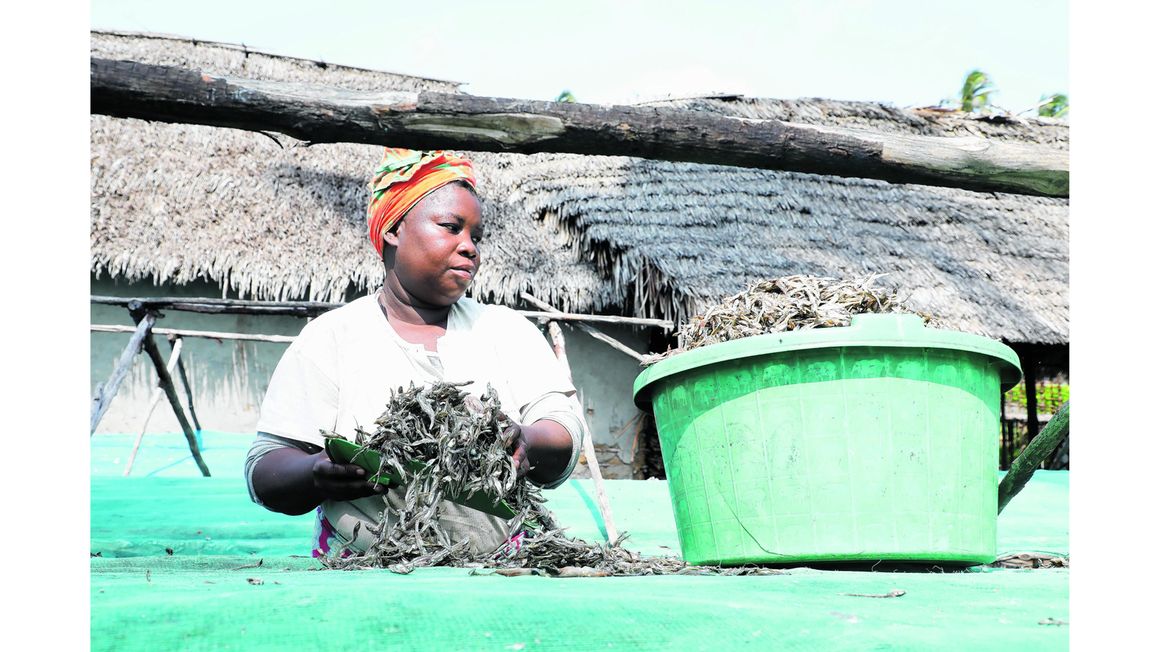
A resident of Mafia Island gathers sun-dried sardines before packaging them for sale. Sardine dealers have asked the government to support them in buying modern drying equipment to help them especially during the rainy season. photo | said khamis
Capital
Ms Hatibu said inadequate capital was another challenge affecting sardine traders, leading to failure of a large consignment to meet demands of domestic and foreign markets. “The government should provide us with soft loans using the national IDs that hold all the necessary details of a person instead of demanding collateral like fixed assets,” she said.
Ms Hatibu was seconded by Mr Ramadhani Mwinyi who said loans were the only way that would enable them graduate to higher levels of entrepreneurship.
But, Mr Ally said since the Sh1.2 billion budget would be implemented by the council this year; then the Sh120 million equivalents to 10 percent of the budget would be disbursed in terms of loans to the women, youth and people with disabilities (PwDs).
“But, loans applications will originate from applicants at the grassroots level in order to end previous complaints of bureaucracy and favouritism in provision of the loans,” he said.
Bungu-Nyamisati Road
Mr Njou said a section of road (45 kilometres) stretching from Bungu to Nyamisati should be constructed at the tarmac level something that will attract operations of more trucks, therefore reducing transportation costs.
Mr Chenga said upgrading the road would not only increase the volume of transported cargo, but also reduce accidents and incidents of passengers missing vessels.
“The move will stimulate trade, attract investors and completely open up the area for more income generation activities,” he said.
In his reaction, Mafia District Commissioner (DC) Shaibu Nnunduma said a section of the road from Bungu to Nyamisati was among key agenda in the regional meetings.
“Funds have been set aside this year for the upgrading of the road to ensure it is passable throughout the year before constructing it to the tarmac level,” he told The Citizen.
Coconut auctions
Council chairman Ally said coconut auctions would be introduced in the Island by mid-this-year in order to attract more players and do away farmer’s troubles when transporting the merchandise to the market.
“Buyers will be responsible for transportation of the produce and relieve farmers from challenges they have been facing during the process and enable the Council to easily collect its revenues,” he said.


